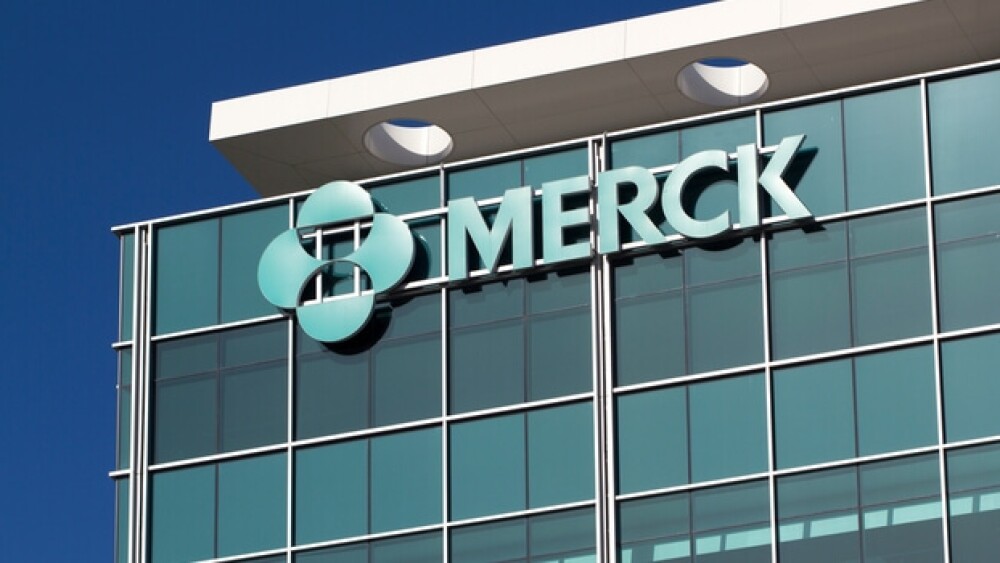Merck and Ridgeback Biotherapeutics announced preliminary results from Ridgeback’s Phase IIa trial of molnupiravir in COVID-19.
Tada Images/Shutterstock
Merck and Ridgeback Biotherapeutics announced preliminary results from Ridgeback’s Phase IIa trial of molnupiravir in COVID-19. They reported on one secondary objective, demonstrating a decrease in days to negativity of infectious virus isolation in nasopharyngeal swabs, as determined by isolation in Vero cell line culture. The results were presented during Science Spotlights at the 2021 Conference on Retroviruses and Opportunistic Infections (CROI 2021).
Molnupiravir is an oral ribonucleoside analog that inhibits the replication of multiple RNA viruses, including SARS-CoV-2, the virus that causes COVID-19. It has demonstrated activity in several models of COVID-19, including for prophylaxis, treatment and prevention of transmission. It has also shown activity in SARS-CoV-1 and MERS.
The drug was invented at Drug Innovations at Emory (DRIVE), LLC, a not-for-profit biotechnology company wholly owned by Emory University. Ridgeback licensed the drug and all development funds have been provided by Wayne and Wendy Holman and Merck. All equity capital in Ridgeback Biotherapeutics originated form Wayne and Wendy Holman.
In late January, Merck announced it was halting development of its two COVID-19 vaccine candidates, V590 and V591, after poor responses in Phase I trials. They decided to shift their attention and resources to two drugs against COVID-19, MK4482 and MK-7110. Molnupiravir is MK-4482.
Then, on March 2, Merck announced that it had inked multiple deals to support manufacturing capacity and supply of COVID-19 drugs and vaccines. In addition to receiving $268.8 million in funding from the Biomedical Advanced Research and Development Authority (BARDA), it had signed a deal with Janssen Pharmaceuticals, a Johnson & Johnson company, to support manufacturing of J&J’s COVID-19 vaccine. It plans to use it plants in the U.S. to produce drug substance, formulate and fill vials of the J&J vaccine.
The presentation of the Merck-Ridgeback data was of the U.S. Phase IIa trial of 202 non-hospitalized adults with signs or symptoms of COVID-19 within seven days and confirmed COVID-19 infection. The primary efficacy endpoint is reduction in time to viral negativity measured by PCR analysis of nasal swabs. Of the 182 people whose nasal swabs could be evaluated, 42% showed detectable levels of cultured virus at baseline. That data is still blinded, so those results are not available.
The new announcement was of a secondary endpoint, which demonstrated a decrease in days to negativity of infectious virus isolated in nasal swabs. At the fifth day, there was a decrease in positive viral cultures in patients who received molnupiravir compared to placebo, with 0% in the molnupiravir group and 24% in the placebo group.
There were no safety signals identified and of the four serious adverse reactions, none were thought to be drug related. Merck has also run a comprehensive nonclinical study to characterize the safety of the drug. This includes assays such as Big Blue and PIG-a, which are designed to measure a drug or chemical’s ability to induce mutations in vivo. Animal studies have also suggested the molnupiravir is not mutagenic or genotoxic in in vivo mammalian systems.
“The secondary objective findings in this study, of a quicker decrease in infectious virus among individuals with early COVID-19 treated with molnupiravir, are promising and if supported by additional studies, could have important public health implications, particularly as the SARS-CoV-2 virus continues to spread and evolve globally,” said William Fischer, lead investigator of the EIDD-2801 2003 study and associate professor of Medicine, Division of Pulmonary Diseases and Critical Care Medicine at the University of North Carolina School of Medicine.





